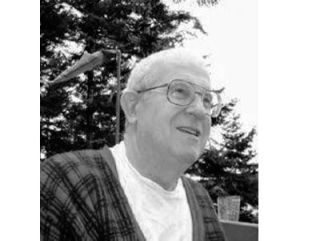“Find a Purpose,” is a small sign that greets Lopez Islander Ron Mayo daily in his Lopez Island home. “I was warned when I moved here, that I’d have to get involved. If I didn’t, I wouldn’t last. I still pass that warning on to others.”
“I’ve spent 74 percent of my life living on islands.”
It’s the kind of exacting statement one might expect from a man who professes to be interested not only in “what” but also “why.”
Mayo’s father joined the Marines during World War II. A nursery business background led to the senior Mayo’s selection for work in an experimental nursery and reestablishing tropical island agriculture after the war. Young Mayo left his Los Angeles birthplace and moved with the family to Guam in 1946. After his freshman year in high school, the Mayos moved to Truk where there were 35 Americans and 12,000 Trukese.
Mayo was sent to Honolulu and boarded at Punahou School where he established life-long friendships and gained study habits that carried him through the University of Washington’s Civil Engineering Program.
“A fellow high school alumnus is President Obama. We don’t talk a lot,” Mayo said with a characteristic flash of humor crossing his face so quickly that the listener must be alert to catch it. The school was founded in 1841 by missionaries and is the oldest and largest preparatory school west of the Rockies.
Mayo graduated from the University in 1957 with a Civil Engineering Degree. One of his childhood heroes was an ichthyologist, a branch of zoology devoted to fish, and a field Mayo also studied.
After Army time on Okinawa, Mayo returned to Seattle and joined a small engineering firm where he was a partner for most of 20 years. The organization moved from small fish hatchery design to developing comprehensive state plans and international projects. Mayo’s desire to learn the requirements for growing different types and numbers of fish led to his role of locating likely projects, marketing his firm’s work and writing the initial feasibility study. He has written several manuals on the subject as well as other publications.
He was in China in 1978 and numerous times thereafter to create environments where shrimp, mullet and carp could be cultured. Initally, China was raising about 10,000 pounds of commercial shrimp a year. Now, they produce more than one-half of the shrimp consumed in the world.
Mayo’s firm, Kramer Chin and Mayo, received the American Consulting Engineers Council’s Grand Conceptor Award for the successful Seattle aquarium design. In all, he worked in 28 states and 15 countries including projects for 17 species of fish. One of Mayo’s last assignments was a Michigan statewide comprehensive fisheries plan replacing the one he did for them 35 years earlier. Part-time work during his last few years of employment included travel to Ecuador, Puerto Rico and to Hong Kong where he planned a Killer Whale exhibit that would meet world standards.
Although Mayo had worked in the San Juans in the 1960s, he didn’t actively seek property there. He did have a small apartment in Bremerton that he, and his new wife, sold in 1963. The buyer made a $1,500 Lopez lot part of the deal, an offer that Mayo accepted without seeing the land. Like many Lopezians, he built a deck for a tent and an outhouse and camped many weekends before building a cabin in 1980. He added on to the cabin in 1995 and moved to the island. “My wife died in 1992 which was not exactly the way we planned it,” he adds in a lowered voice.
“I’m on the San Juan County Water Management Advisory Committee—it’s part of finding a purpose.” Mayo’s white papers on catchment systems and reverse osmosis have been adopted by the county and state.
“During the last ten years I’ve had three travel trailers. My current trailer is a white fiberglass egg called a Scamp, a tiny thing that fits me and my dog, Girl. I make a number of trips each year and at least one into British Columbia. I hope to go to the Yukon this year.” He pulls the trailer with a bright red Jeep.
Mayo has started selling his collection of several thousand books he calls “Pacifica” back to various dealers. “I don’t have room for any more bookshelves.” He confesses to a weakness for Haiku, Robert Service and Don Blanding’s poetry. “I check out things like electronic books but I haven’t tried them yet. Regular books are fine.”
A dedicated writer of daily events, Mayo says this is why he writes: “One day I won’t be able to remember what I had for breakfast. I’ll forget my son’s name. I’ll start a sentence with ‘I remember,’ and then I’ll forget. And then my caregiver will bring over one of my old notebooks and the memories will come back, if just for a while.”



